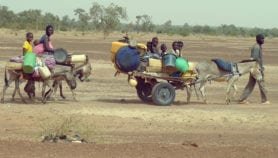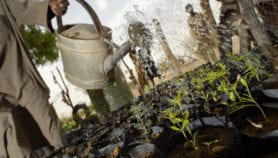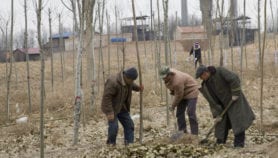By: Saleem Shaikh
Send to a friend
The details you provide on this page will not be used to send unsolicited email, and will not be sold to a 3rd party. See privacy policy.
[KARACHI] Pakistan is seeking technological solutions for an unfolding water crisis, caused by depleting natural water resources and wastefulness, which is turning much of its land arid.
Lack of funds, though, has proved a major constraint for Pakistan’s efforts to plug the technological gap in its water sector, Jawed Ali Khan, director-general at Pakistan’s ministry of environment, told SciDev.Net. The ministry estimates that almost 80 per cent of the country’s land is semi-arid or arid.
Experts attribute the escalating water crisis to reduced flow in the country’s main river system, the Indus basin, due to warming and shrinking of the Himalayan glaciers. Unchecked deforestation and wasteful irrigation techniques used in agriculture that consumes over 70 per cent of its freshwater resources are other reasons.
Possible solutions to water stress were discussed at a workshop organised by the School of Civil & Environmental Engineering, in collaboration with UNESCO, at the National University of Sciences and Technology, Islamabad, in June.
The workshop recommended that Pakistan increase investments in water reservoirs; improve water management, irrigation and crop cultivation; introduce rainwater harvesting and recycling of waste water; and launch of mass awareness campaigns.
The suggestions included “drip irrigation” that allows water to trickle slowly to plant roots; “sprinkler irrigation” that sprays water on crops instead of flooding the fields., and “pitcher irrigation” in arid and semi-arid areas whereby farmers bury clay water pitchers underground that allow water to seep out according to soil dryness.
These techniques could help cut water losses by 55 per cent, Shabaz Khan, head of the water and sustainable development section at UNESCO, Paris, said.
Nearly 70 per cent of Pakistan’s 291 millimetres of annual rainwater gets wasted because of poor storage facilities and accumulation of silt in the country’s water reservoirs, said Qamar uz Zaman Choudhary, former director-general of the Pakistan Meteorological Department..
Pakistan had long been warned of an impending water crisis due to poor land management practices, said Allan Savory, chairman of the Africa Centre for Holistic Management, Zimbabwe, which won the 2010 Buckminster Fuller Challenge, an international competition for projects that provide solutions for global problems.
Savory’s 1983 report for the Food and Agriculture Organisation, had warned that Pakistan’s poor land management practices had so adversely affected soil surface and rainfall catchments that they would lead to man-made floods and droughts; and worsen the few natural ones.
Savory’s solution lay in his award-winning ‘holistic grazing planning’ that depends on grazing cattle and goats to break up the soil through their hoof action and fertilise it with droppings.













